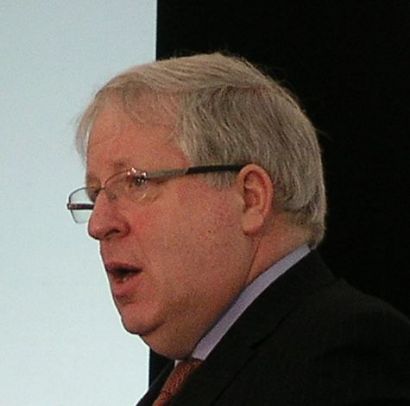THE transport secretary has attempted to stem the rising tide of opposition to HS2 by setting out the Government's priorities in a keynote speech.
Patrick McLoughlin was addressing an HS2 conference in Manchester, having just revealed a revised business case for the line. This shows a slightly lower cost benefit ratio of 2.3 -- down from 2.5 -- by the mid 2030s, but he also pointed out that this could almost double by 2049 if allowance is made for continuing passenger growth.
The BCR change is being mainly attributed to the addition of a further £10 billion contingency allowance by the Treasury earlier this year, but also to the fact that the Department has withdrawn its earlier claim that faster journey times would be more productive partly because people do not work while travelling, a view which had been widely criticised as unrealistic.
Opponents are continuing to reject the Government's case for the line, urging alternative upgrades to the existing network instead. Labour, too, is continuing to show signs of wavering, and some reports suggest that the Opposition could be poised to withhold its support when a 'Paving Bill' intended to authorise further HS2 expenditure comes before MPs tomorrow (31 October).
Network Rail chief executive David Higgins will move to take charge of the Government's high speed rail development company HS2 Ltd early next year. He has gained a reputation for straight speaking and is expected to provide new backbone to the project. Speaking in his present role, he has warned repeatedly that the mainly Victorian rail network cannot cope with the expected growth, and that a 'make do and mend' approach will not be enough.
The transport secretary – who originates from Cannock in Staffordshire and is MP for Derbyshire Dales – told his audience in Manchester that: “Any threat to the new line is a threat to the Midlands and to the North.”
He added: “HS2 is a multi-year, multi-billion investment in the future of Britain. Did anyone say there would be a blank cheque for it? Of course not. We will see more than £2 paid back for every £1 invested – and with David Higgins in charge we will do better.”
Pointing out that rail passenger totals have doubled in the past 20 years, and that work is still to be done at Watford Junction next year on the West Coast Main Line, the transport secretary said: “Quick fix alternatives don’t work.”
In the next five-year Control Period, which starts in April, Network Rail would spend £37 billion on the existing railway, he said, and for the next Parliament the Government had set a transport budget of £73 billion – “of which HS2 accounts for less than a third".
Speaking of alternative upgrading of the East Coast, Midland and West Coast Main Lines, Mr McLoughlin said it would mean route closures at weekends for 14 years, as well as new sections of bypass line at key points, which would cause their own disruption.
“This is not an alternative, it is an impossibility,” he declared. “We can’t build for the future by ripping the existing network to bits. It would just be a giant bodge up.”
The transport secretary also maintained that the frequently-cited benefit cost ratio calculations were 'not the most important thing' because they failed take account of many other factors. And he explained that the standard way of calculating BCR did not take account of any growth three years beyond completion of a project. “But if growth does continue, the BCR could be as high as 4.5,” he said.
Pointing out that £16 billion was already being invested in Crossrail and £6 billion in Thameslink, Mr McLoughlin added: “You don’t see London media correspondents criticising that.”
Earlier, HS2 technical director Professor Andrew McNaughton had said all cost estimates were based on 'a worst credible case' – but he expected that contractors in the supply chain, working with a programme spread over many years, would invest in innovation and skills so that costs would be reduced.
Douglas Oakervee, the outgoing chairman of HS2 Ltd, said the budget for phase one of the line from London to Lichfield, including a spur line to Birmingham city centre, was set at £17.6 billion, and he was 'not interested' in any of the £14.4 billion contingency that the Treasury had insisted should be added.
Text of speech in full
Statement to Parliament, 29 October


